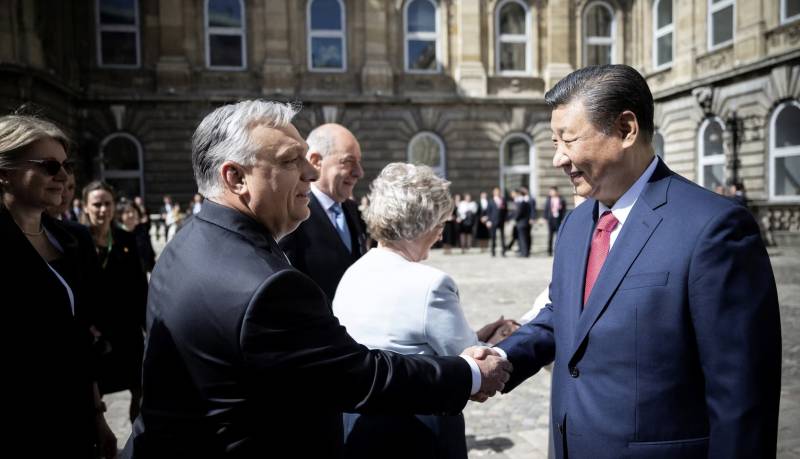
While the EU Commission chief Ursula von der Leyen urged Chinese President Xi Jinping to ensure more balanced trade ties, and signaled a readiness to impose tariffs and duties on cheap Chinese imports, the Chinese President has been given a warmer welcome in Hungary.
In President Xi’s first visit to Europe in five years, he has made stops in France and Serbia. His last destination is Hungary, where he arrived to a warm welcome by Hungarian Prime Minister Viktor Orban and President Tamas Sulyok on May 8.
Xi is reported to have said that bilateral ties between Hungary and China had “withstood the test of changing international situations,” and were “at their best in history.” Chinese state broadcaster CCTV reported the President as saying that “the everlasting friendship between China and Hungary is neither directed against a third party nor is it restricted by a third party.”
Hungary, led by right-wing populist Viktor Orban has emerged as China’s strongest ally in the European Union, and is angling to deepen investment ties, even as the rest of the 27-member EU seeks to realign their economies to reduce dependence on Chinese goods and services.
China and Hungary are expected to announce over a dozen new cooperation agreements, one of which could include a large infrastructure project within the ambit of China’s ambitious Belt and Road Initiative (BRI).
Media in Hungary has reported that Xi and Orban will also announce the construction of an automobile manufacturing factory in the southern Hungarian town of Pecs, where GWM will produce electric vehicles. This follows the construction of a $8 billion battery factory by Chinese battery giant CATL in the city of Debrecen, and a manufacturing facility owned and operated by Chinese EV manufacturer BYD, in the southern Hungarian town of Szeged.
With the EU threatening China with protectionist tariffs and quotas on Chinese manufactured products, foreign investment into manufacturing plants by Chinese firms in Hungary will allow products to bypass any future EU tariffs.
President Xi is likely enlisting whatever support he can get in Europe for his vision of an alternative to the American-led global order, and Hungary, which is also allied with Putin’s Russia, has become Beijing’s closest ally in the European Union.
